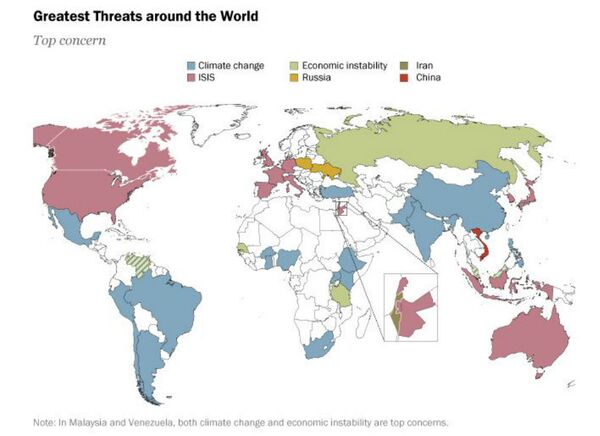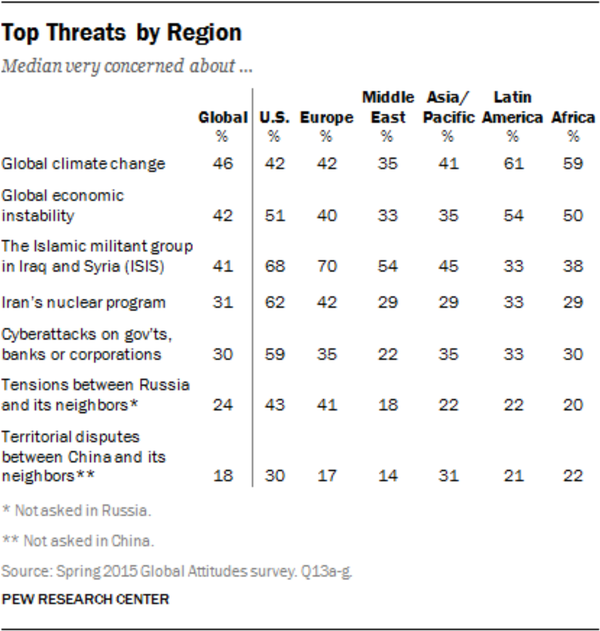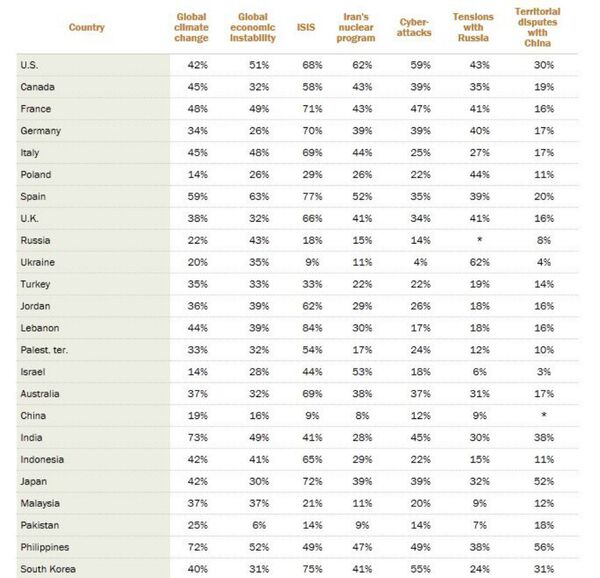Climate change appears to be the world’s largest threat, followed by global economic instability and the Islamic State (IS), according to the recently revealed results of the survey.
The survey was conducted on a global scale; the surveyed groups were asked to choose the greatest one out of the suggested list of international challenges and here are the results.
Globally, 46 percent of those surveyed believe the threat of global climate change is more significant than global economic instability (42%) and the Islamic State (41%).

The results, however, vary considerably by region: in Europe, 70 percent of those surveyed think that IS poses the greatest threat to the world, while only 42 percent think the leading threat is global climate change, the same proportion gives second place to the Iranian nuclear program. The third on the list of its concerns are tensions between Russia and its neighbors (41%).

The US also lists IS as the globe’s top challenge (68%), with Iran’s nuclear program ranking second (62%) and cyberattacks on governments, banks and corporations ranking third (59%).
Among the nations of the Middle East, IS is also at the top (54%), global climate change comes in second (35%) and global economic instability ranks third (33%), the same holds true for the Asia and Pacific region: IS (45%) is followed by global climate change (41%) and global economic instability and cyberattacks (35%).
Global climate change only comes first in Latin America (61%) and Africa (59%). Global economic instability comes second in these regions: 54% and 50%. IS only comes in third: 33% and 38%. Interestingly enough, for Latin America, IS poses the same level of threat as Iran’s nuclear program and cyberattacks.
Even more interestingly, the results reveal attitudes by country: while Israelis (53%) are the only public surveyed to rate Iran as their top concern among the international issues tested, Poland (44%) and Ukraine (62%) rank Russia at the top, which could be largely explained by geography and heavy anti-Russian propaganda.
Similarly, while there is little concern worldwide about territorial disputes between China and its neighbors, it is one of the top two concerns in a number of Asian nations, including Vietnam (60%) and the Philippines (56%).

Meanwhile, the German research association GfK conducted its own survey of what worries Europe. For Germany, the top concern is immigration (35%), mostly from African countries. Since last year, this issue, which had been a top concern for only 13%, has surpassed unemployment, which had ranked first for almost 22 years.
In Switzerland 29 per cent of respondents rank immigration as a problem which needed to be solved urgently. It also ranked high in Austria (26%) and in Sweden (25%).





